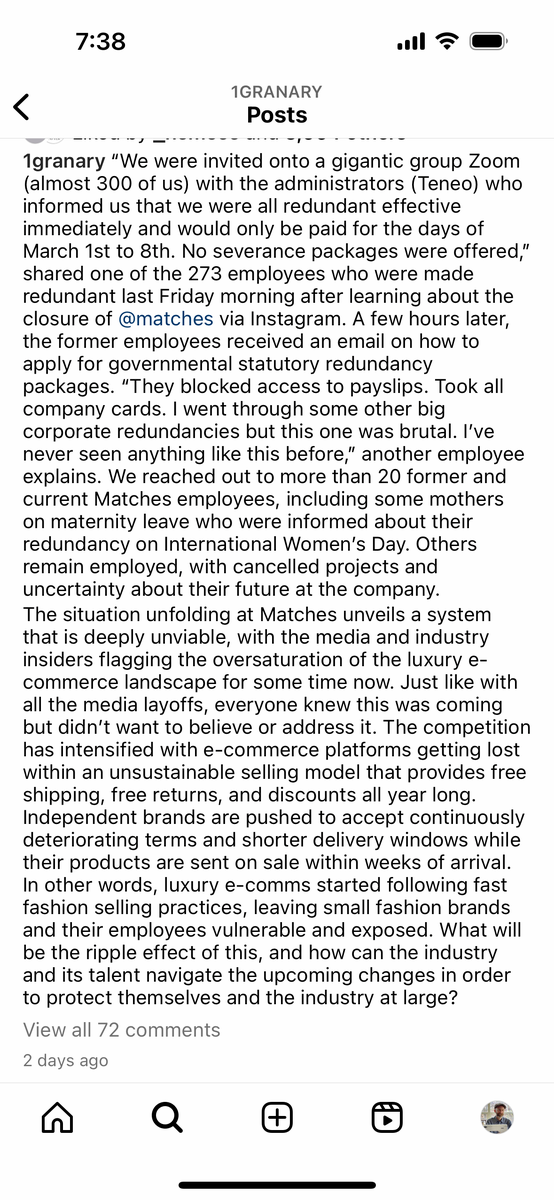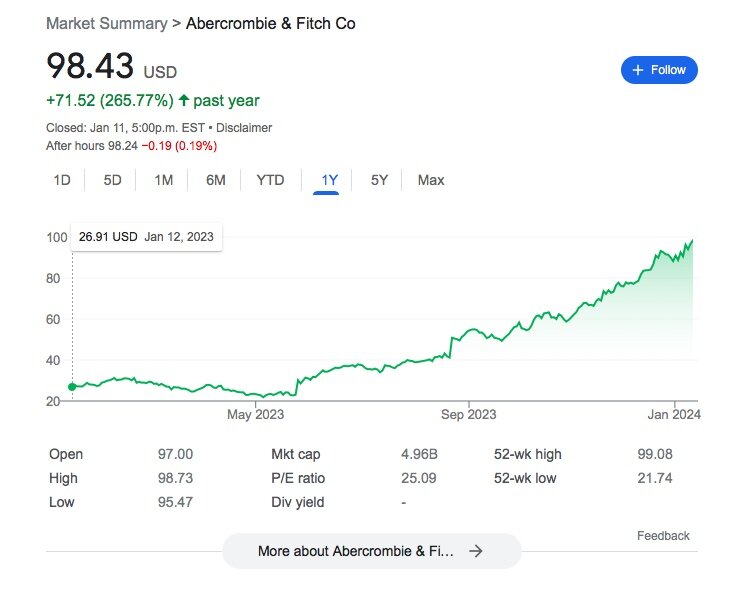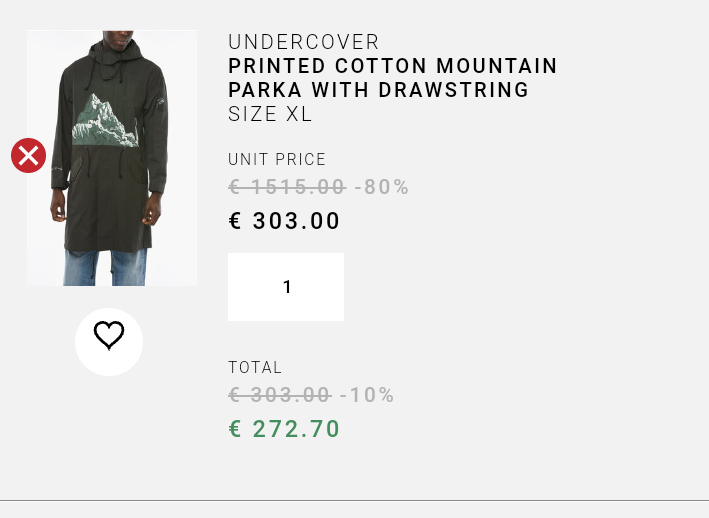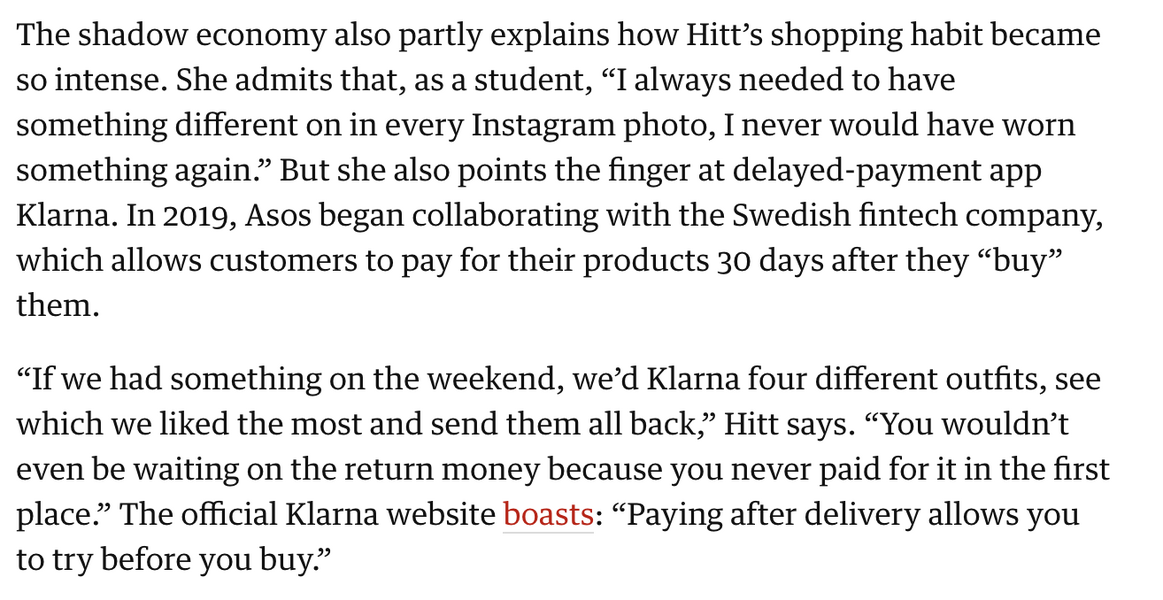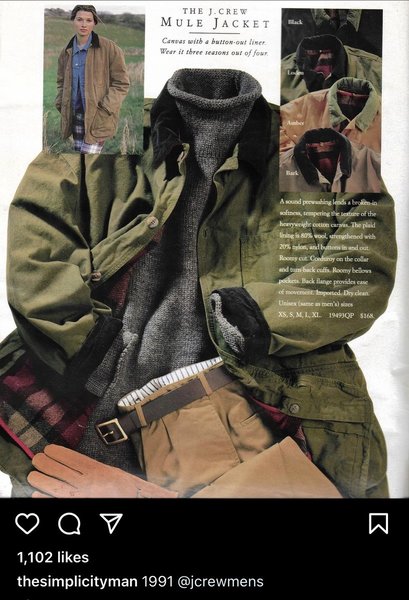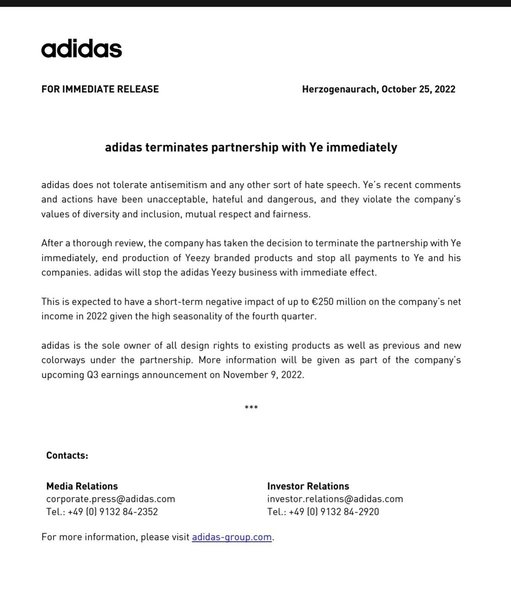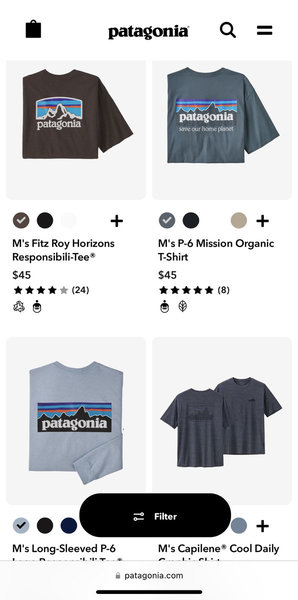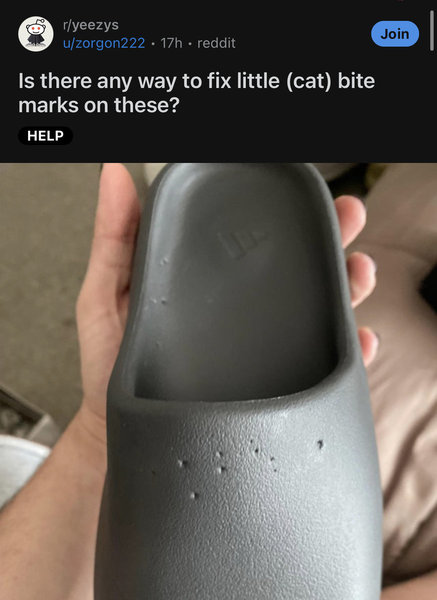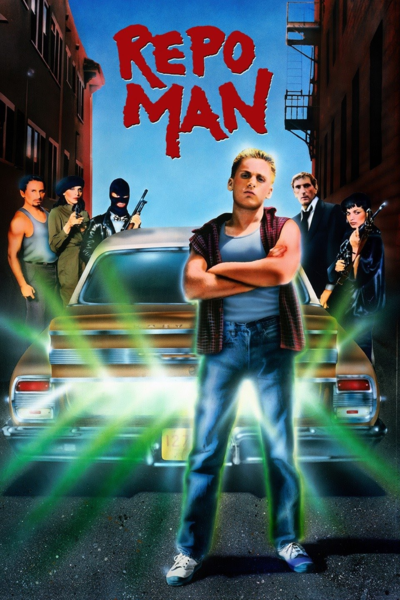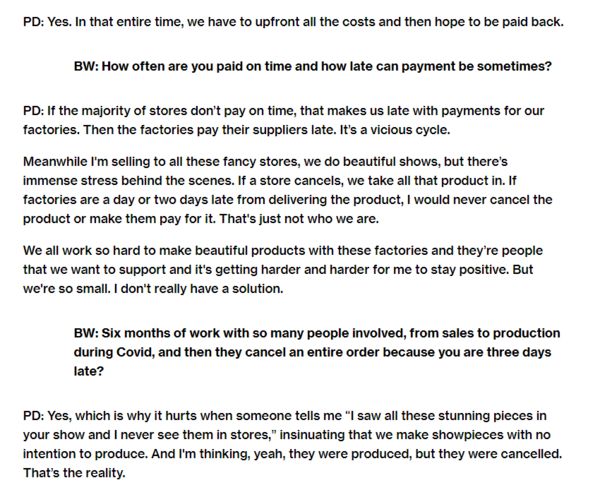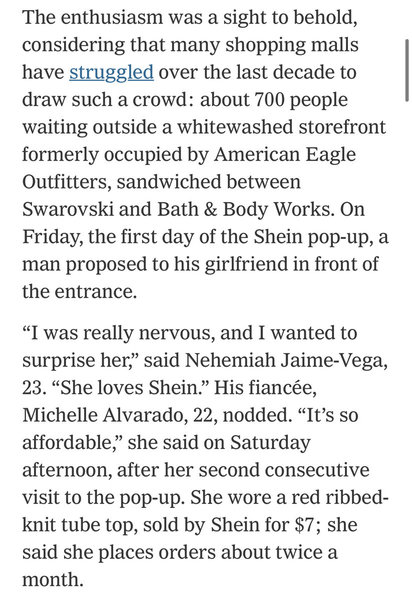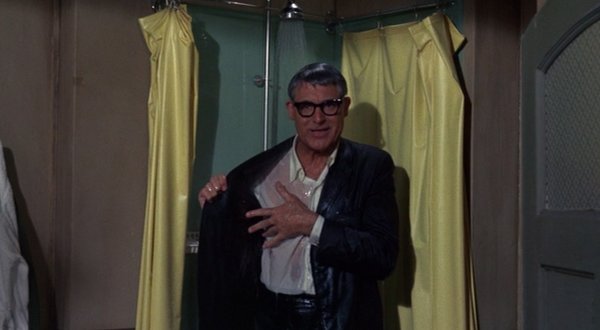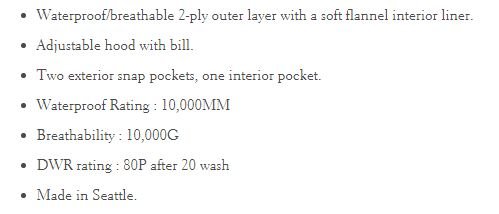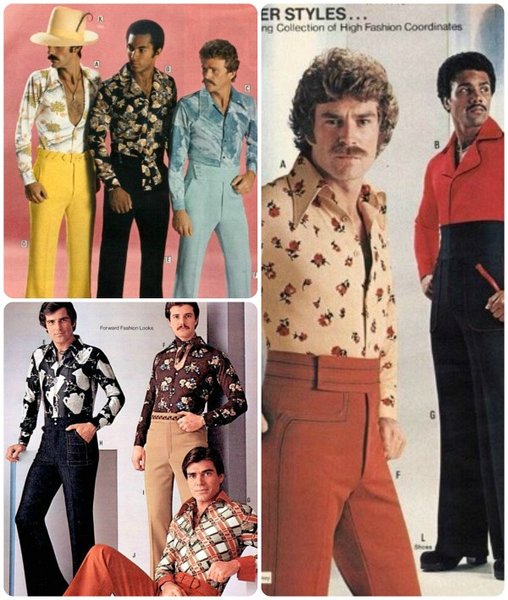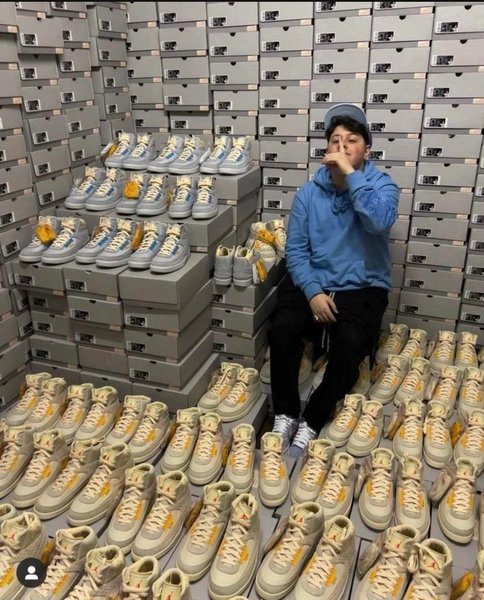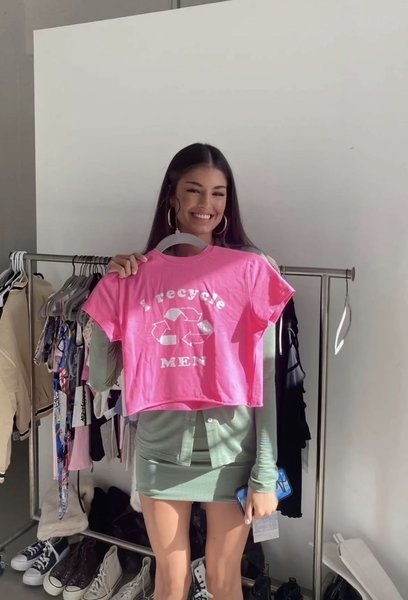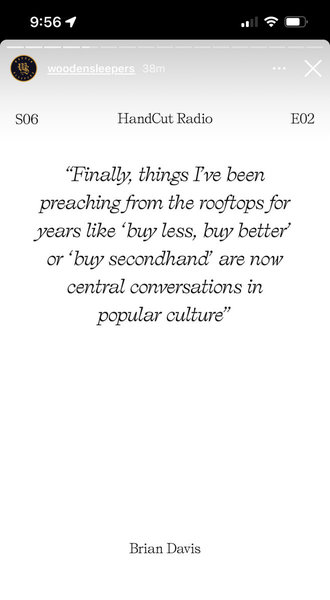- Joined
- Feb 11, 2008
- Messages
- 13,074
- Reaction score
- 11,322
Isn't Southwick set to shutter in July? And the tie factory following in August?
My understanding is that a large percentage of the employees at Southwick have already been laid off. The plans for the standalone Southwick brand has been terminated. At the moment, a small number of people have been allowed to come back to make facial masks.
The US government and Southwich have also butted heads on how the government would support the facial mask efforts. In April, Claudio was on a phone call with the White House, along with 10 or 20 other fashion-related CEOs. The WH said they could "elevate" the efforts with praise on Ivanka's Twitter account (influencer marketing!), but that they wanted these efforts to be market-driven and thus won't be providing any federal aid. Notably, in the same month, the US Navy tried to get hundreds of thousands of masks from Brooks, but without clear terms on how they would pay. At the moment, the Brooks manufacturing effort is mostly limited to selling stuff to everyday people, which seems again unstainable.
I don't want to add to any of the speculation, but Southwick has been a crucial partner for the past 10 years, and I'm in regular communication with the senior management of Brooks about things. There is a NYT story just out today on things, but you can read between the lines that things are very much in flux. Nothing is really confirmed or stated. Couple of thoughts...
1) Southwick is a huge facility with highly trained employees, a cooperative local government, and a flexible union.
2) It has a significant existing client list and the ability to run both stock and custom garments
These established clothing factories have a way of finding new owners and new management. It's insanely expensive to start one, so there's often entities who will look to purchase something existing. It was bought by Bayer Clothing in 1999. Then acquired by Brooks in 2008. I can't predict anything, but the idea that a turnkey suiting factory will be shuttered and written off entirely would be unlikely.
I honestly don't know anything about the Garland factory, and I only visited the tie facility one time to set up my own tie production. I can't comment on how viable they are or not. I can say that the capital investment of that suit factory is WAY higher, so Southwick would be the most attractive of the three to sell or reinvest in. It's just such a mammoth loss otherwise.


